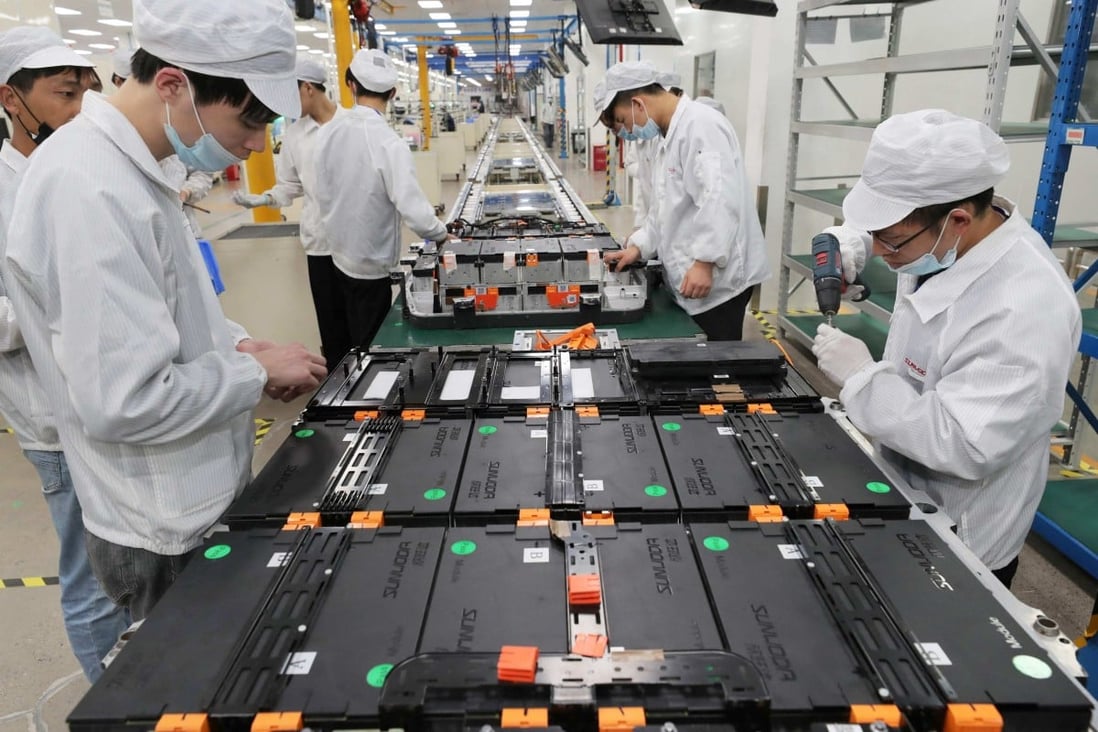China's Export Restrictions on Lithium Processing Equipment: Disruption for EV Supply Chains
As China tightens its grip on the global lithium supply chain, the implications for electric vehicle (EV) production are profound. Recent announcements reveal that China has begun restricting exports of critical equipment necessary for lithium processing, a vital component in the manufacturing of EV batteries. With over 60% of global lithium processing and a staggering 70% market share in lithium production, China's moves could significantly disrupt Western automakers and battery producers.

Background on Lithium's Importance
Lithium is a key metal in the production of batteries for electric vehicles, making it essential for the transition to cleaner energy. As demand for EVs surges, the need for reliable and sustainable lithium sources has never been more crucial. China's dominance in the lithium processing sector has long raised concerns among Western nations, especially given the escalating trade tensions between China and the US.
Recent Developments
According to reports, a major Chinese manufacturer has halted exports of sorbents filtration equipment, which is vital for extracting lithium from brines. This follows Beijing's proposal to impose licensing requirements on certain battery technologies, indicating a strategic shift to control the flow of this essential resource. Companies in China are now negotiating exemptions, but the uncertainty surrounding these negotiations is causing ripples in global lithium projects.
Western firms that had planned to source lithium extraction technology from China are now facing significant challenges. The restrictions are already leading to increased scrutiny of China's multi-billion dollar lithium export deals, with banks demanding additional approvals for transactions involving restricted items.
Impact on Global Supply Chains
The ramifications of China's export restrictions could be severe. Delays in lithium extraction projects may hinder the production of over 14 million EV batteries annually. As companies rush to develop independent sourcing and processing technologies, they face an uphill battle. China's two-decade lead in lithium processing means that Western firms may struggle to catch up quickly enough to mitigate the impact of these restrictions.

The urgency for the US and Europe to develop alternative lithium supply chains is now paramount. Governments and industries are actively seeking ways to reduce their dependence on China, exploring new partnerships and investments in domestic lithium mining and processing capabilities.
Conclusion
China's recent actions to restrict exports of lithium processing equipment could reshape the global lithium market and disrupt the EV supply chains that rely heavily on this crucial resource. As countries scramble to establish independent supply chains, the long-standing dominance of China in this sector is facing unprecedented challenges. The future of electric vehicle production may hinge on how quickly and effectively Western nations can pivot away from reliance on Chinese lithium processing technologies. The ongoing developments in this domain will be critical to watch, as the transition to sustainable energy continues to unfold.
What's Your Reaction?














